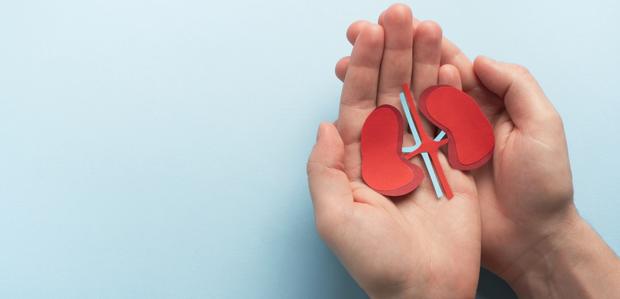Department of Nephrology

Gleneagles Hospital is the best Kidney hospital in Hyderabad for kidney disease, providing the best service from beginning to end. The kidney is a vital organ needed to ensure our body functions properly. Its function is to clean the blood and remove toxins from the blood. This removes toxic waste such as ammonia and urea and ensures these toxins are washed out of the body. It also assists by releasing the erythropoietin hormone in controlling Blood Pressure and increasing red blood cells.
For the treatment of Kidney Diseases and Kidney Transplants, our team consists of the following:
- the best surgical Nephrologist in Hyderabad,
- the best Kidney specialist who works closely with a highly trained nurse to coordinate your appointments.
- a pharmacist, who is also a part of the team, looks after the medications and helps avoid dangerous combinations of medicines,
- a dietician monitors the food you eat and helps you develop healthy meal plans.
While it may take the body some time to adjust to a new kidney, patients have shown positive outcomes with significant health and Kidney function changes. After the transplant is completed by Hyderabad’s top Kidney doctor, regular blood tests are performed to make sure the donor’s kidney is doing fine.
Our Doctors
View all
Dr Dhanalakshmi G
Senior Consultant & Transplant Physician
MBBS, DM & MD - Nephrology
Gleneagles Hospital is one of the best hospitals for nephrology in Hyderabad, providing the best Kidney Transplant surgery services. It also specialises in follow-procedure surgery and treatment care. We agree that aftercare is also important and that is something that our trained nurses and para-medical staff take care of. Our Kidney Transplant Surgery centre is run by the best Kidney doctors in Hyderabad whose professional knowledge and skills have contributed significantly to the creation of a nationally recognised name.
We are a centre with a global team of physicians. In Hyderabad, we have one of the best specialists in kidney transplants. The Gleneagles Brand has been preferred by people throughout Asia who suffer from renal failure or other cases of Organ Transplantation and we are among the best hospitals for Kidney Diseases in Hyderabad. We have state-of-the-art operating theatres, specialized in providing surgeons with minimal access to surgical features in cases where advanced surgical interference is required.
Our achievements showcase our doctors ‘expertise. We operated the first Twin-kidney Transplant operation in Andhra Pradesh and Telangana state. We were also the first hospital to have been accredited by the Indian government.
- What sets Gleneagles Hospital apart in Nephrology treatment in Hyderabad?
Gleneagles Hospital has one of the finest teams of nephrology experts, including highly experienced surgeons and consultants. Our commitment to delivering the best treatment and care is supported by a world-class team of nurses and paramedical staff.
- Why are Gleneagles Hospital nephrologists considered among the best in Hyderabad?
Our hospital is recognized as one of the best for Nephrology, thanks to our exceptional team of nephrologists who are well-trained and highly experienced. We take pride in being a trusted choice for kidney disease treatment in Hyderabad, with a reputation built on the expertise of our doctors and the support of our patients.
- What equipment and facilities does Gleneagles Hospital offer for kidney disease treatment?
Gleneagles Hospital is equipped with the latest technology for the treatment of kidney diseases, making it one of the best Nephrology hospitals in Hyderabad. Our commitment to utilizing advanced equipment contributes to our success rate and expertise in providing quality care.
- What is considered one of the top hospitals for kidney disease?
Gleneagles Hospital in Hyderabad is recognized as one of the premier hospitals for kidney disease treatment. Our team includes the finest surgical nephrologists and kidney specialists who collaborate closely with highly trained nurses, pharmacists, and dieticians to ensure comprehensive care.
FAQ
Why Choose Us
-
Patient Experience
Your care and comfort are our top priorities. We ensure that the patients are well informed prior to every step we take for their benefit and that their queries are effectively answered.
-
Latest Technologies
The Gleneagles Hospitals' team stays up to date on the advancements in medical procedures and technologies. Experience the Future Healthcare Technologies now at Gleneagles Hospitals.
-
Providing Quality Care
Strengthening lives through compassionate care, innovative therapies and relentless efforts. It reflects in the DNA of our passionate team of doctors and dedicated clinical staff.










